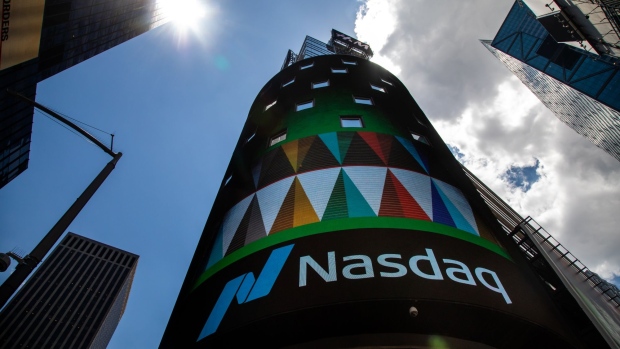Feb 8, 2023
Hesai Raises $190 Million in Biggest Chinese US IPO Since Didi
, Bloomberg News

(Bloomberg) -- Hesai Group, a developer of sensor technologies used in self-driving cars, rose 11% in its US trading debut after expanding its initial public offering to raise $190 million.
The listing is the largest by a Chinese issuer in the US market since the crash of Didi Global Inc. in 2021. Shanghai-based Hesai sold 10 million American depositary shares for $19 each, after marketing 9 million for $17 to $19.
Hesai opted to pursue a US listing over other venues because it wanted more exposure on the global stage, co-founder and Chief Executive Officer Yifan Li said in an interview.
“We wanted to be able to directly compare against with peers and make ourselves transparent to the greater part of the market,” he said.
He added that Hesai is talking to several global car players for potential business opportunities. “For them to make those decisions, being able to know we are publicly traded, well-funded with healthy growth margin and cashflow is tremendously important,” he said.
The company’s shares, which opened trading Thursday at $23.75, closed at $21.05 in New York trading, giving the company a market value of about $2.6 billion.
Hesai’s listing marks a potential comeback of Chinese companies seeking to raise capital in the US, joining two other firms that have already launched IPOs this year. Delisting risk for this group has eased significantly after Washington and Beijing made progress resolving an audit dispute, with market sentiment turning more bullish amid China’s reopening bets.
The US IPO market was nearly shut for China firms since Beijing forced Didi to delist shortly after its $4.4 billion New York debut. Only 10 Chinese issuers went public in New York last year, raising a total of $376 million, the smallest amount in a decade, according to data compiled by Bloomberg.
In contrast, this year has started on a high note, with two firms including Quantasing Group Inc. pricing new listings. China-based firms, led by iQiyi Inc. and Bilibili Inc., have also raised $1.4 billion through sales of additional shares on US exchanges, the data show.
Hesai’s sales have grown steadily over the past three years to almost $112 million with its net loss shrinking to $23 million for the nine months ended Sept. 30, according to its filings with the US Securities and Exchange Commission. Baidu Inc., Xiaomi Corp. and Meituan are among its strategic investors, as well as German engineering conglomerate Robert Bosch GmbH.
The offering was led by Goldman Sachs Group Inc., Morgan Stanley, Credit Suisse Group AG and Huatai Securities. The shares are trading on Nasdaq under the symbol HSAI.
(Updates with CEO’s comment in third paragraph)
©2023 Bloomberg L.P.





